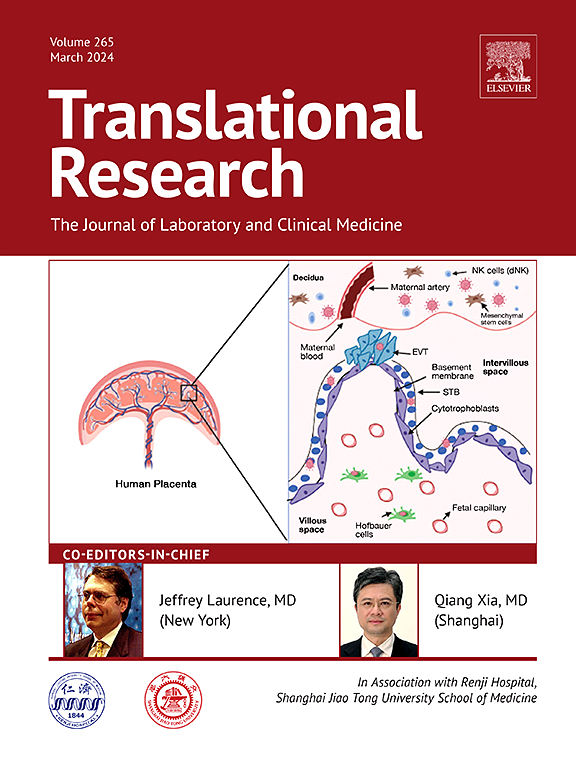急性肾损伤中巨噬细胞驱动的炎症:治疗的机遇和挑战
IF 6.4
2区 医学
Q1 MEDICAL LABORATORY TECHNOLOGY
引用次数: 0
摘要
急性肾损伤(AKI)越来越被认为是一种与显著发病率和死亡率相关的全身性疾病。AKI表现为广泛的细胞损伤、坏死和强烈的炎症反应,常导致晚期间质纤维化。尽管肾损伤和修复的机制尚不清楚,但巨噬细胞(关键炎症细胞)在AKI中起着核心作用。它们经历促炎和抗炎表型的极化,在维持体内平衡的同时动态地促进损伤和修复过程。巨噬细胞通过释放含有促炎或抗炎信号分子的细胞外囊泡(EVs)调节微环境炎症,从而影响组织损伤的调节。受伤的组织细胞释放ev并激活局部巨噬细胞来启动这些反应。我们的文献计量分析表明,AKI巨噬细胞研究已经转向治疗策略和临床翻译,重点是巨噬细胞靶向治疗,包括外泌体和纳米颗粒。本文综述了巨噬细胞激活、表型极化和反式分化在AKI中的作用和机制,并讨论了基于巨噬细胞的AKI预防和治疗方法。了解巨噬细胞在AKI中的作用有助于理解相关的免疫机制,并为新的诊断和治疗途径奠定基础。本文章由计算机程序翻译,如有差异,请以英文原文为准。
Macrophage-driven inflammation in acute kidney injury: Therapeutic opportunities and challenges
Acute kidney injury (AKI) is increasingly being recognized as a systemic disorder associated with significant morbidity and mortality. AKI manifests with extensive cellular damage, necrosis, and an intense inflammatory response, often leading to late-stage interstitial fibrosis. Although the mechanisms underlying renal injury and repair remain poorly understood, macrophages (pivotal inflammatory cells) play central roles in AKI. They undergo polarization into pro-inflammatory and anti-inflammatory phenotypes, contributing dynamically to both the injury and repair processes while maintaining homeostasis. Macrophages modulate microenvironmental inflammation by releasing extracellular vesicles (EVs) containing pro- or anti-inflammatory signaling molecules, thereby influencing the regulation of tissue injury. The injured tissue cells release EVs and activate local macrophages to initiate these responses. Our bibliometric analysis indicated that a shift has occurred in AKI macrophage research towards therapeutic strategies and clinical translation, focusing on macrophage-targeted therapies, including exosomes and nanoparticles. This review highlights the roles and mechanisms of macrophage activation, phenotypic polarization, and trans-differentiation in AKI and discusses macrophage-based approaches for AKI prevention and treatment. Understanding the involvement of macrophages in AKI contributes to the comprehension of related immune mechanisms and lays the groundwork for novel diagnostic and therapeutic avenues.
求助全文
通过发布文献求助,成功后即可免费获取论文全文。
去求助
来源期刊

Translational Research
医学-医学:内科
CiteScore
15.70
自引率
0.00%
发文量
195
审稿时长
14 days
期刊介绍:
Translational Research (formerly The Journal of Laboratory and Clinical Medicine) delivers original investigations in the broad fields of laboratory, clinical, and public health research. Published monthly since 1915, it keeps readers up-to-date on significant biomedical research from all subspecialties of medicine.
 求助内容:
求助内容: 应助结果提醒方式:
应助结果提醒方式:


